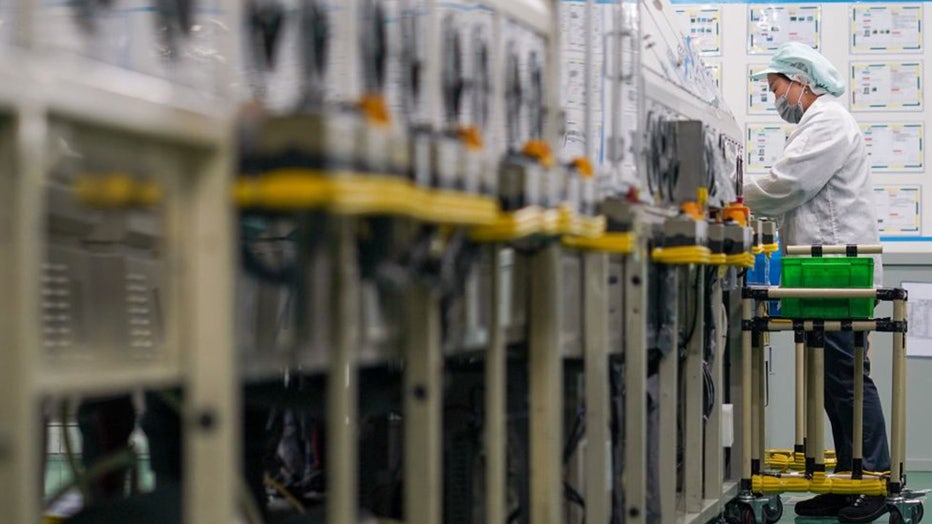Panasonic chooses Kansas for electric vehicle battery mega-factory
Are EV batteries as green as they say? Yes and no
Eric Wachsman, professor at the University of Maryland and director of Maryland Energy Innovation Institute, weighs in on some of the reasons why some people are not totally behind electric vehicles.
TOPEKA, Kan. - Japan’s Panasonic Corp. selected Kansas as the location for a multibillion-dollar mega-factory to produce electric vehicle batteries for Tesla and other carmakers, Gov. Laura Kelly announced Wednesday.
The decision comes five months after the Democratic governor and Republican-controlled Legislature rushed to approve a taxpayer-funded incentive package of as much as $1 billion, the state’s largest ever, to attract the company and the promised "thousands of jobs," even though most of them didn’t know what company was in play. Kelly said Wednesday that the actual incentives will total $829 million over 10 years.
The plant will be located in De Soto, Kansas, a town with about 6,000 people and 30 miles (48.28 kilometers) southwest of Kansas City, Missouri.
"People across the country are looking at Kansas as a leader in economic development," Kelly told a gathering of about 250 state officials and business leaders in downtown Topeka Wednesday.
Japanese broadcaster NHK reported this year that the company was looking to build the factory in Kansas or Oklahoma, close to Texas, where Tesla is building an electric-vehicle plant. The two companies jointly operate a battery plant in Nevada.

FILE - A worker is busy at a battery assembly workshop at Panasonic Energy Wuxi Co. Ltd. in Wuxi, east China's Jiangsu Province, July 5, 2022. (Li Bo/Xinhua via Getty Images)
Kelly’s administration said the facility it was pursuing would be the largest economic development project in Kansas history. They said the company would employ 4,000 people and that other businesses supplying or supporting it would add several thousand more jobs. They said the company would pay an average of $50,000, which would far exceed Kansas’ median income for individuals of less than $32,000.
Kelly pushed for the permission to offer tax credits, payroll subsidies and training funds to lure what her administration said was a $4 billion project that at least one other state was also pursuing.
The measure requires the state to cut its corporate tax rates by half a percentage point for every big deal closed so that all businesses benefit. That would save companies roughly $100 million a year and drop the state’s top rate to 6% from 7% if two deals close.
RELATED: Electric vehicle battery myths v. facts: The debate over ‘green’
Backers of the measure argued that Kansas has lost out on other large projects because it couldn’t offer generous enough incentives.
Oklahoma’s Republican-controlled Legislature approved an incentive package this year to offer rebates of up to nearly $700 million in state funds if Panasonic reached specific benchmarks, including at least a $4.5 billion capital expenditure and the creation of at least 4,000 jobs during the project’s first four years. State officials say that money could be returned to the general fund or used to lure another major project.
Ohio recently offered Intel Corp. incentives worth roughly $2 billion to secure a new $20 billion chipmaking factory. Michigan lawmakers in December approved $1 billion in incentives, two-thirds of it for General Motors for plants to assemble batteries for electric vehicles.
Electric vehicle maker Canoo has announced plans to open a factory in northeastern Oklahoma next year that is expected to create 2,000 jobs.
But Wisconsin scaled back incentives for electronics giant Foxconn. It was supposed to invest $10 billion there and create 13,000 jobs but the deal now is for about 1,450 jobs with an investment of $672 million by 2026.
___
Associated Press reporter Sean Murphy in Oklahoma City, Oklahoma, contributed to this report.

